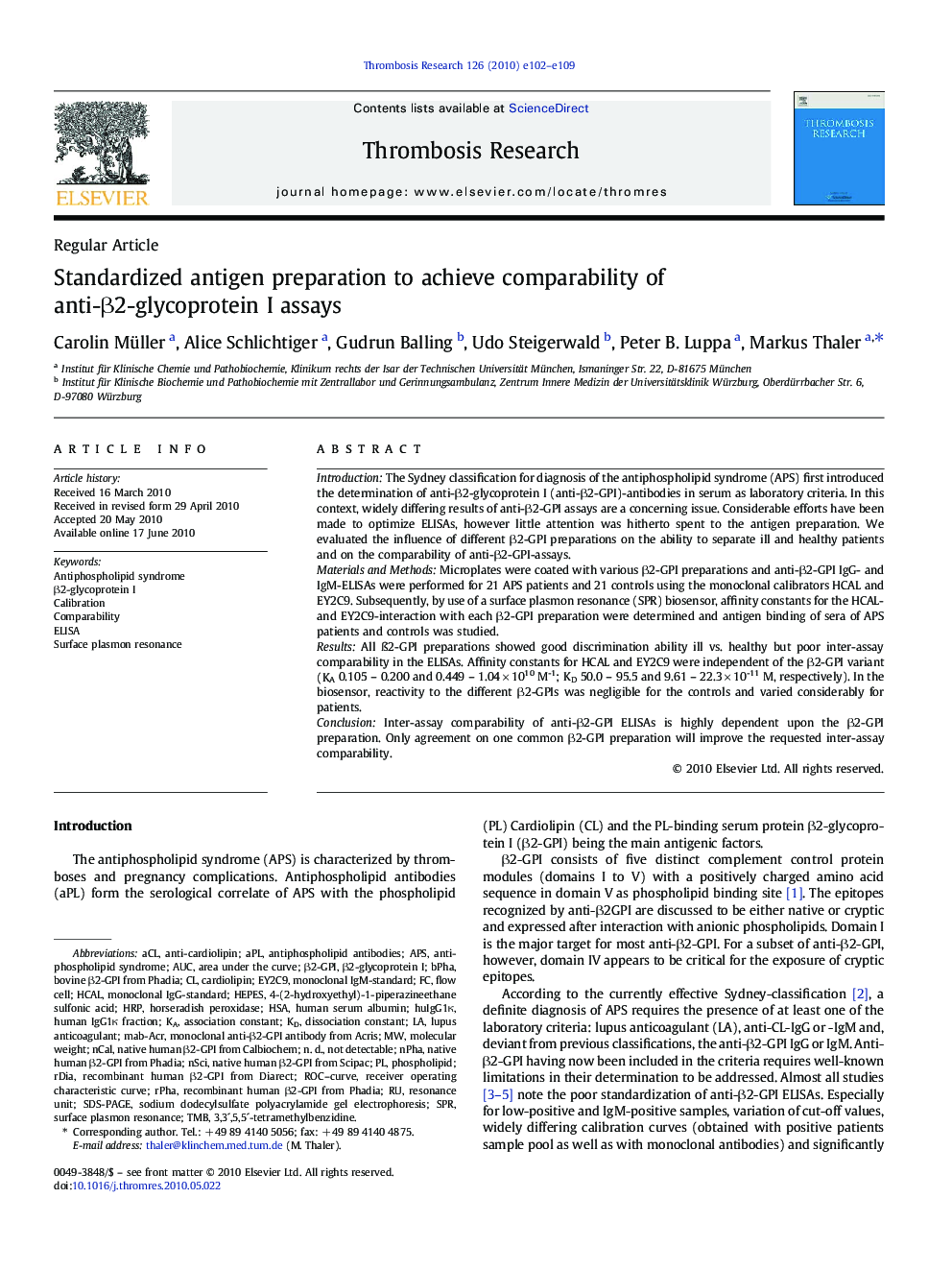| Article ID | Journal | Published Year | Pages | File Type |
|---|---|---|---|---|
| 6003108 | Thrombosis Research | 2010 | 8 Pages |
IntroductionThe Sydney classification for diagnosis of the antiphospholipid syndrome (APS) first introduced the determination of anti-β2-glycoprotein I (anti-β2-GPI)-antibodies in serum as laboratory criteria. In this context, widely differing results of anti-β2-GPI assays are a concerning issue. Considerable efforts have been made to optimize ELISAs, however little attention was hitherto spent to the antigen preparation. We evaluated the influence of different β2-GPI preparations on the ability to separate ill and healthy patients and on the comparability of anti-β2-GPI-assays.Materials and MethodsMicroplates were coated with various β2-GPI preparations and anti-β2-GPI IgG- and IgM-ELISAs were performed for 21 APS patients and 21 controls using the monoclonal calibrators HCAL and EY2C9. Subsequently, by use of a surface plasmon resonance (SPR) biosensor, affinity constants for the HCAL- and EY2C9-interaction with each β2-GPI preparation were determined and antigen binding of sera of APS patients and controls was studied.ResultsAll Ã2-GPI preparations showed good discrimination ability ill vs. healthy but poor inter-assay comparability in the ELISAs. Affinity constants for HCAL and EY2C9 were independent of the β2-GPI variant (KA 0.105 - 0.200 and 0.449 - 1.04 Ã 1010 M-1; KD 50.0 - 95.5 and 9.61 - 22.3 Ã 10-11 M, respectively). In the biosensor, reactivity to the different β2-GPIs was negligible for the controls and varied considerably for patients.ConclusionInter-assay comparability of anti-β2-GPI ELISAs is highly dependent upon the β2-GPI preparation. Only agreement on one common β2-GPI preparation will improve the requested inter-assay comparability.
